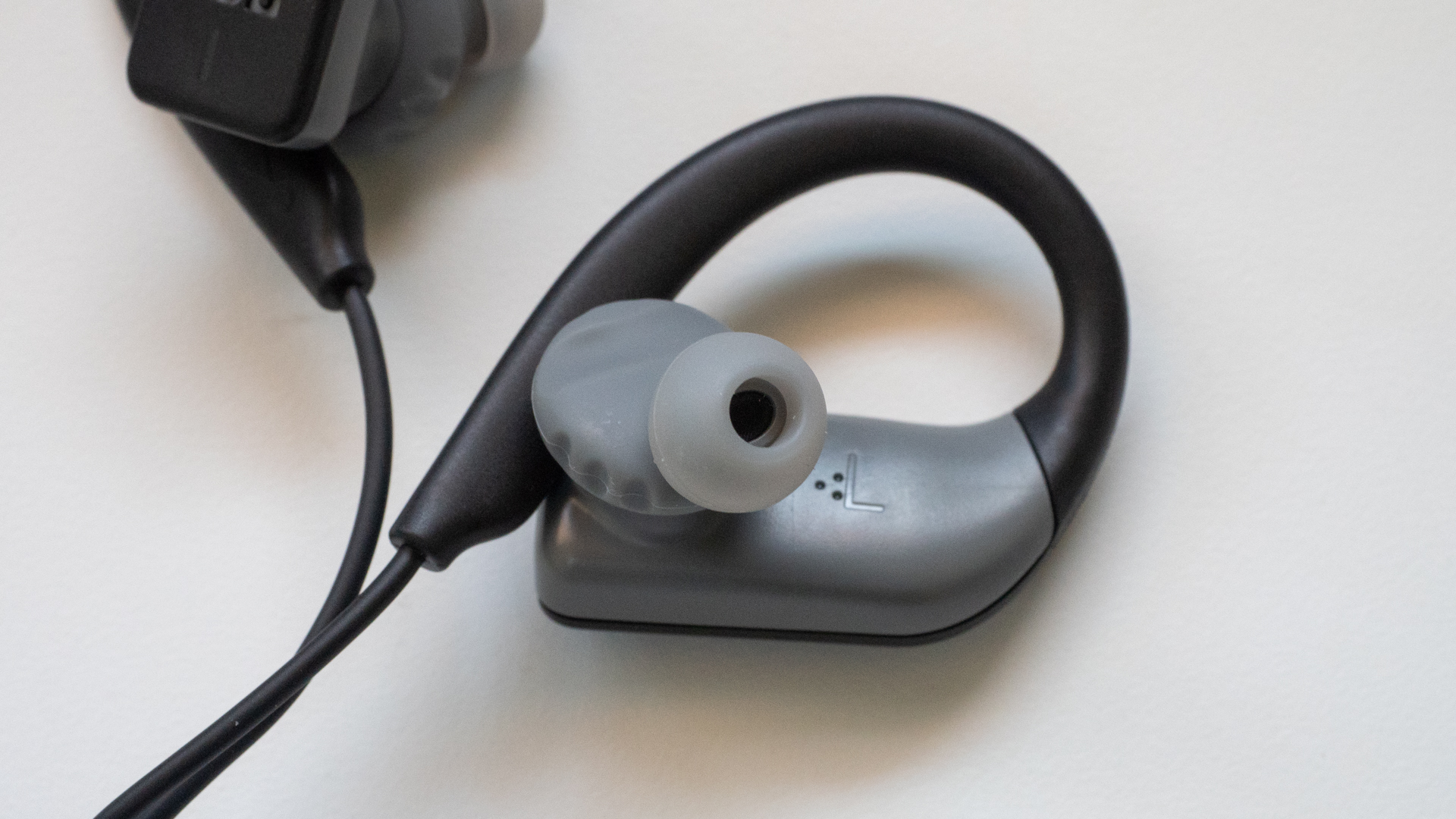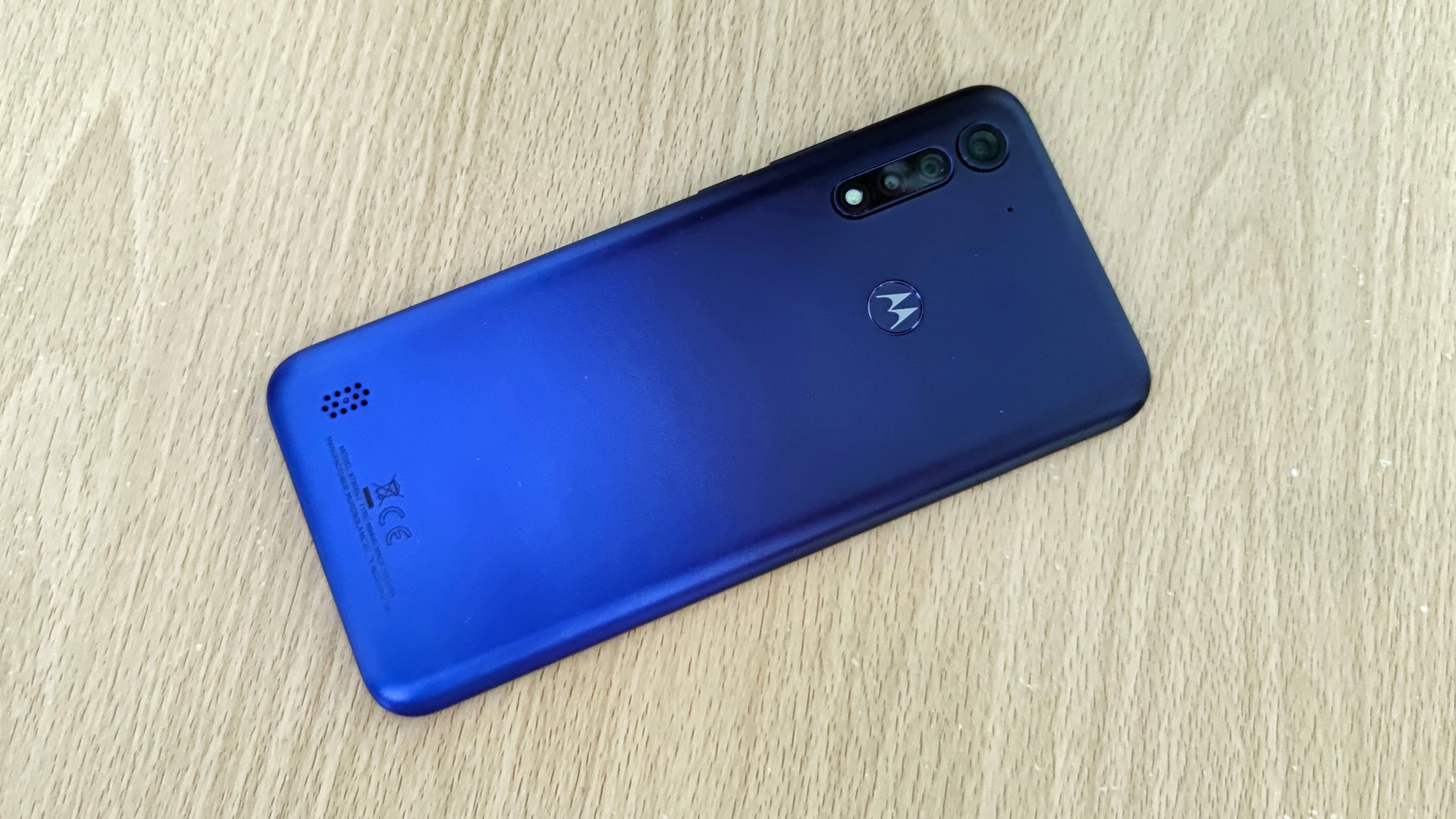I love cheap gadgets. I don't think you ever need to spend tons of cash on premium smartphones, smartwatches or fitness trackers – and now I'm ready to add running headphones to the list of gadgets you don't need to splash out on.

Column number: 6
Date written: 12/05/21
Days in: 72
Current location: St Louis, MO
Distance traveled: 300.63 miles
Distance left: 1977.37 miles
Current tracker: Polar Vantage M2
When I started my Route 66 running challenge, in which I have to run nearly 2,300 miles over two years, I bought some new wireless running headphones to accompany me (I'd previously used wired ones, but since I test many smartphones without 3.5mm headphone jacks, I had to upgrade).
The JBL Endurance Sprint I picked up cost £30 in a sale – usually costing $50 / £45, AU$80. They were only meant to be gateway headphones, which lasted me until I could save up for a more expensive alternative. However after 300 miles and several months of workouts, I've realized I don't need to spend any more than I already have.
- These are the best running headphones
What I need to run
When I started using the JBL Endurance Sprint, I found them decidedly fine. The basic audio quality was fine. The build design was fine. The eight-hour battery life was fine. Everything was fine – and nothing more than that.
Pairing seemed complicated and didn't always work right, though it's an issue I don't have any more (or maybe I got used to it). As I said, I was coming from wired headphones, which by their nature don't have pairing problems. But my overall impression was of a compromise that I'd eventually want to upgrade from.
But all that changed when I hit the streets (metaphorically – though I did literally hit my head on the pavement once, and the headphones survived just fine). This might be a controversial opinion, but when running, I don't think music quality actually matters too much.
Just as, when I'm working, it's easy to tune out of the music in the background, I find that while I'm running I don't need to listen too hard to the music. It's there to inform my pace, keep the blood pumping, distract me from how slow time passes. I don't need great-sounding audio if I'm just going to ignore it.
I don't need great-sounding audio if I'm just going to ignore it.

Sure, I have a few running playlists, with up-beat songs that encourage me to keep my pace high; I've also got an emergency list of the best songs of this genre, for when I'm really flagging and need a pick-me-up. But I know these songs so well that they don't play to my ears, so much as my soul.
After all, music quality isn't what's going to help me hit my new personal best, or find the strength for that extra mile; music choice is. And I don't need $300 / £300 headphones to listen to Livin' La Vida Loca, as the song plays on my budget buds just fine.
If I pay more for pricier headphones, I'm not really going to reap the benefits of any audio improvements they bring, which begs the question – what's the point?
- These are the best cheap phones
Why cheap tech is best
Some people likely buying expensive technology – fair enough. Some people can afford it, and I'm jealous of them. But even if I won the lottery tomorrow (and didn't blow all the cash on a private island), I don't think I'd upgrade my headphones.
In testing smartphones, watches and fitness trackers, I've noticed a common trait cheap tech has – it's always much, much more durable than pricey tech. If you drop your Samsung Galaxy phone it'll shatter like glass (probably because it literally is made of glass), but a Motorola phone will bounce back with nary a scratch.
As I said, I faceplanted on a run once, and the JBL Endurance Sprint lasted just fine; they've endured multiple drops, rainstorms and cataclysms of sweat, and borne those injuries like a champ. My fancy non-running headphones threaten to break when I so much as look at them funny.
Add to that what I wrote in the previous section – I don't think music quality is really important when running – and I really don't see the need to spend loads more money on different cans.

- We've tested the best cheap phones
You never need to spend
What would spending more on headphones get me? I don't need better audio quality. The design is probably better because of the price. I'm not going to need longer battery life, if I remember to charge frequently. Bone conduction is just... well, I'm not fussed about it, but good for you if it enhances your experience.
I've found, though, that spending more money doesn't always get you a product that's proportionately better. A $1,200 smartphone is not twice as good as a $600 one, or four times better than a wonderfully cheap $300 handset.
There are usually diminishing returns the more you spend, and high-price products can often feel like an unnecessary rip off. I've tested many devices with high prices, and most of the time I don't feel these costs are justified – that's a common trait I've found among gadgets of all different types, not just phones or headphones.
Especially in these difficult times, it's crucial that technology remains affordable for those who can't justify high-end gadgets – and while loads of brands and tech websites try to push you to buying the newest super-price phone, games console, headphones, or otherwise, it's always worth remembering you can get fantastic gadgets without having to spend too much.
from TechRadar - All the latest technology news https://ift.tt/3om2wl9
